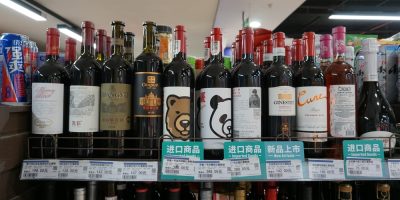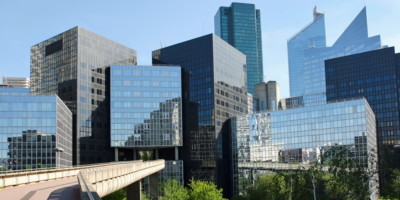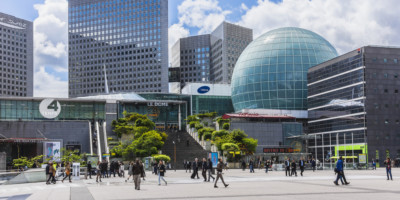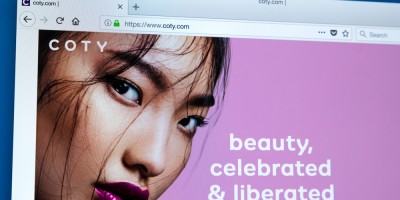-
France
France: Ambush marketing and the Paris 2024 Olympic Games
4 March 2024
- Distribution
- Trademark and Patents
SUMMARY: In large-scale events such as the Paris Olympics certain companies will attempt to “wildly” associate their brand with the event through a practice called “ambush marketing”, defined by caselaw as “an advertising strategy implemented by a company in order to associate its commercial image with that of an event, and thus to benefit from the media impact of said event, without paying the related rights and without first obtaining the event organizer’s authorization” (Paris Court of Appeal, June 8, 2018, Case No 17/12912). A risky and punishable practice, that might sometimes yet be an option yet.
Key takeaways
- Ambush marketing might be a punished practice but is not prohibited as such;
- As a counterpart of their investment, sponsors and official partners benefit from an extensive legal protection against all forms of ambush marketing in the event concerned, through various general texts (counterfeiting, parasitism, intellectual property) or more specific ones (e.g. sport law);
- The Olympics Games are subject to specific regulations that further strengthen this protection, particularly in terms of intellectual property.
- But these rights are not absolute, and they are still thin opportunities for astute ambush marketing.
The protection offered to sponsors and official partners of sporting and cultural events from ambush marketing
With a budget of over 4 billion euros, the 2024 Olympic and Paralympic Games are financed mostly by various official partners and sponsors, who in return benefit from a right to use Olympic and Paralympic properties to be able to associate their own brand image and distinctive signs with these events.
Ambush marketing is not punishable as such under French law, but several scattered texts provide extensive protection against ambush marketing for sponsors and partners of sporting or cultural continental-wide or world-wide events. Indeed, sponsors are legitimately entitled to peacefully enjoy the rights offered to them in return for large-scale investments in events such as the FIFA or rugby World Cups, or the Olympic Games.
In particular, official sponsors and organizers of such events may invoke:
- the “classic” protections offered by intellectual property law (trademark law and copyright) in the context of infringement actions based on the French Intellectual Property Code,
- tort law (parasitism and unfair competition based on article 1240 of the French Civil Code);
- consumer law (misleading commercial practices) based on the French Consumer Code,
- but also more specific texts such as the protection of the exploitation rights of sports federations and sports event organizers derived from the events or competitions they organize, as set out in article L.333-1 of the French Sports Code, which gives sports event organizers an exploitation monopoly.
The following ambush marketing practices were sanctioned on the abovementioned grounds:
- The use of a tennis competition name and of the trademark associated with it during the sporting event: The organization of online bets, by an online betting operator, on the Roland Garros tournament, using the protected sign and trademark Roland Garros to target the matches on which the bets were organized. The unlawful exploitation of the sporting event, was punished and 400 K€ were allowed as damages, based on article L. 333-1 of the French Sports Code, since only the French Tennis Federation (F.F.T.) owns the right to exploit Roland Garros. The use of the trademark was also punished as counterfeiting (with 300 K€ damages) and parasitism (with 500 K€ damages) (Paris Court of Appeal, Oct. 14, 2009, Case No 08/19179);
- An advertising campaign taking place during a film festival and reproducing the event’s trademark: The organization, during the Cannes Film Festival, of a digital advertising campaign by a cosmetics brand through the publication on its social networks of videos showing the beauty makeovers of the brand’s muses, in some of which the official poster of the Cannes Film Festival was visible, one of which reproduced the registered trademark of the “Palme d’Or”, was punished on the grounds of copyright infringement and parasitism with a 50 K€ indemnity (Paris Judicial Court, Dec. 11, 2020, Case No19/08543);
- An advertising campaign aimed at falsely claiming to be an official partner of an event: The use, during the Cannes Film Festival, of the slogan “official hairdresser for women” together with the expressions “Cannes” and “Cannes Festival”, and other publications falsely leading the public to believe that the hairdresser was an official partner, to the detriment of the only official hairdresser of the Cannes festival, was punished on the grounds of unfair competition and parasitism with a 50 K€ indemnity (Paris Court of Appeal, June 8, 2018, Case No 17/12912).
These financial penalties may be combined with injunctions to cease these behaviors, and/or publication in the press under penalty.
An even greater protection for the Paris 2024 Olympic Games
The Paris 2024 Olympic Games are also subject to specific regulations.
Firstly, Article L.141-5 of the French Sports Code, enacted for the benefit of the “Comité national olympique et sportif français” (CNOSF) and the “Comité de l’organisation des Jeux Olympiques et Paralympiques de Paris 2024” (COJOP), protects Olympic signs such as the national Olympic emblems, but also the emblems, the flag, motto and Olympic symbol, Olympic anthem, logo, mascot, slogan and posters of the Olympic Games, the year of the Olympic Games “city + year”, the terms “Jeux Olympiques”, “Olympisme”, “Olympiade”, “JO”, “olympique”, “olympien” and “olympienne”. Under no circumstances may these signs be reproduced or even imitated by third-party companies. The COJOP has also published a guide to the protection of the Olympic trademark, outlining the protected symbols, trademarks and signs, as well as the protection of the official partners of the Olympic Games.
Secondly, Law no. 2018-202 of March 26, 2018 on the organization of the 2024 Olympic and Paralympic Games adds even more specific prohibitions, such as the reservation for official sponsors of advertising space located near Olympic venues, or located on the Olympic and Paralympic torch route. This protection is unique in the context of the Olympic Games, but usually unregulated in the context of simple sporting events.
The following practices, for example, have already been sanctioned on the above-mentioned grounds:
- Reproduction of a logo imitating the well-known “Olympic” trademark on a clothing collection: The marketing of a collection of clothing, during the 2016 Olympic Games, bearing a logo (five hearts in the colors of the 5 Olympic colors intersecting in the image of the Olympic logo) imitating the Olympic symbol in association with the words “RIO” and “RIO 2016”, was punished on the grounds of parasitism (10 K€ damages) and articles L. 141-5 of the French Sports Code (35 K€) and L. 713-1 of the French Intellectual Property Code (10 K€ damages) (Paris Judicial Court, June 7, 2018, Case No16/10605);
- The organization of a contest on social networks using protected symbols: During the 2018 Olympic Games in PyeongChang, a car rental company organized an online game inviting Internet users to nominate the athletes they wanted to win a clock radio, associated with the hashtags “#JO2018” (“#OJ2018”), “#Jeuxolympiques” (“#Olympicsgame”) or “C’est parti pour les jeux Olympiques” (“let’s go for the Olympic Games”) without authorization from the CNOSF, owner of these distinctive signs under the 2018 law and article L.141-5 of the French Sport Code and punished on these grounds with 20 K€ damages and of 10 K€ damages for parasitism (Paris Judicial Court, May 29, 2020, n°18/14115).
These regulations offer official partners greater protection for their investments against ambush marketing practices from non-official sponsors.
Some marketing operations might be exempted
An analysis of case law and promotional practices nonetheless reveals the contours of certain advertising practices that could be authorized (i.e. not sanctioned by the above-mentioned texts), provided they are skillfully prepared and presented. Here are a few exemples :
- Communication in an offbeat or humorous tone: An offbeat or even humorous approach can help to avoid the above-mentioned sanctions:
In 2016, for example, the Intersnack group’s Vico potato chips brand launched a promotional campaign around the slogan “Vico, partner of home fans” in the run-up to the Euro and Olympic Games.
Irish online betting company Paddy Power had sponsored a simple egg-in-the-spoon race in “London” (… a village in Burgundy, France), to display in London during the 2012 Olympics the slogan “Official Sponsor of the largest athletics event in London this year! There you go, we said it. (Ahem, London France that is)“. At the time, the Olympic Games organizing committee failed to stop the promotional poster campaign.
During Euro 2016, for which Carlsberg was the official sponsor, the Dutch group Heineken marketed a range of beer bottles in the colors of the flags of 21 countries that had “marked its history”, the majority of which were however participating in the competition.
- Communication of information for advertising purposes: The use of the results of a rugby match and the announcement of a forthcoming match in a newspaper to promote a motor vehicle and its distinctive features was deemed lawful: “France 13 Angleterre 24 – the Fiat 500 congratulates England on its victory and looks forward to seeing the French team on March 9 for France-Italy” (France 13 Angleterre 24 – la Fiat 500 félicite l’Angleterre pour sa victoire et donne rendez-vous à l’équipe de France le 9 mars pour France-Italie) the judges having considered that this publication “merely reproduces a current sporting result, acquired and made public on the front page of the sports newspaper, and refers to a future match also known as already announced by the newspaper in a news article” (Court of cassation, May 20, 2014, Case No 13-12.102).
- Sponsorship of athletes, including those taking part in Olympic competitions: Subject to compliance with the applicable regulatory framework, particularly as regards models, any company may enter into partnerships with athletes taking part in the Olympic Games, for example by donating clothing bearing the desired logo or brand, which they could wear during their participation in the various events. Athletes may also, under certain conditions, broadcast acknowledgements from their partner (even if unofficial). Rule 40 of the Olympic Charter governs the use of athletes’, coaches’ and officials’ images for advertising purposes during the Olympic Games.
The combined legal and marketing approach to the conception and preparation of the message of such a communication operation is essential to avoid legal proceedings, particularly on the grounds of parasitism; one might therefore legitimately contemplate advertising campaigns, particularly clever, or even malicious ones.



























